A SHOCK TO THE SYSTEM
This winter has had it's share of cold snaps, bringing new terms like "polar vortex" to our collective vocabulary. It seems that the weather is overly dramatized more and more each year by meteorologists looking to build hype and drive up their ratings. There are usually a few times each winter when it gets pretty cold, sometimes even below zero, which doesn't stop me from going outdoors. So in early January, when the temperatures plummeted, I didn't think too much of it despite the cries from weathermen (and women). I had been watching a Snowy Owl on Great Island in Old Lyme, and usually stopped a few times a week in the late afternoon to check on it. One night as I was driving to Great Island during the worst cold spell, I noticed hundreds of gulls flying around as I drove past the Black Hall River, a small tributary near the mouth of the Connecticut River. This was pretty unusual, but I didn't think too much of it and spent about a half an hour watching the owl with a couple other hardy birders in the bitter cold and wind. It was really unpleasant.
A few days later, a birder kayaking around Great Island for the Christmas Bird Count reported seeing dead striped bass at the south end of Great Island. Soon after, the source of the floating fish, and the huge flock of gulls I saw, became apparent when hundreds, if not thousands, of dead Striped Bass were found lining the banks of the Black Hall River. The DEEP responded and determined that the die-off was likely caused by the record cold weather.
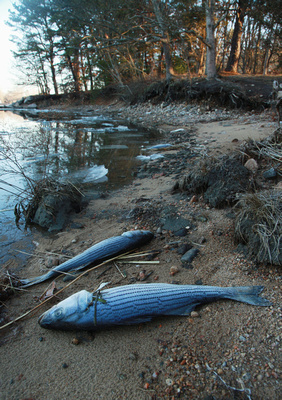

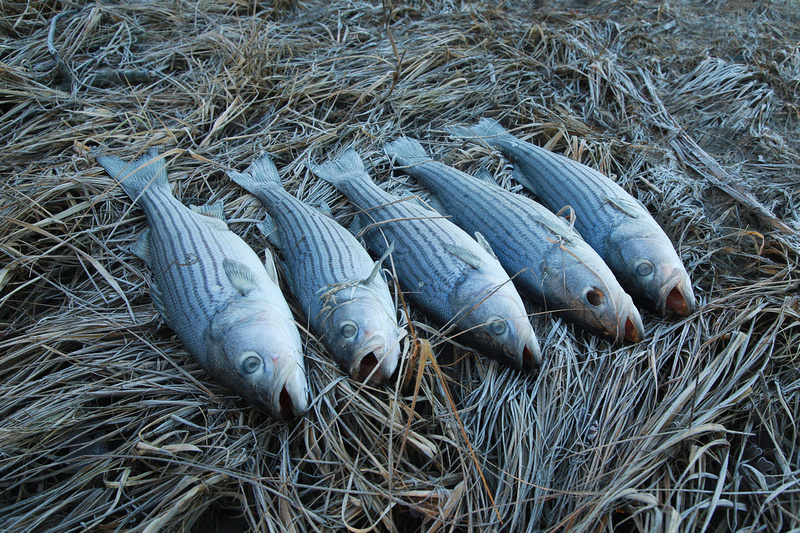

It's believed that the fish became trapped in the shallow water of the Black Hall, either by ice or low tides due to a coinciding new moon. The sudden onset of extremely cold weather combined with the fish being trapped in the shallow water resulted in a condition called cold shock, that caused a massive fish kill. A smaller die-off in the river was reported a few years earlier after a similar cold spell. As the news got out, I stopped by the river at the Route 156 bridge to see the carnage for myself. It was awful to see so many beautiful fish strewn along the river bank, many with their eyes pecked out. Farther up the river I saw more than a hundred dead fish in one spot at low tide, piled up on the bank near a bend in the river. I'm sure there were many more in areas I couldn't access, based on the huge flocks of birds gathered there.
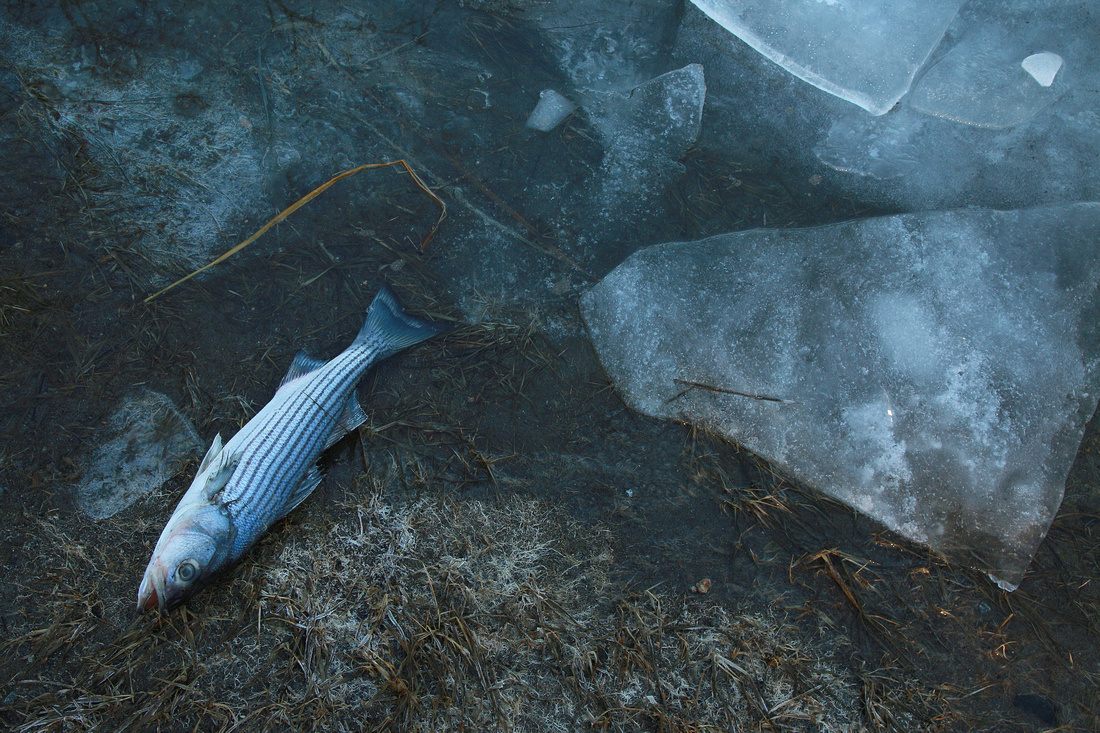

As sad as the fish kill was, it was apparently a natural occurrence, and nature has a way of cleaning up its messes. In the weeks after the die-off, the decaying fish provided a seemingly endless bounty of food for the birds. Large flocks of gulls gathered to feed on the carcasses scattered along the river bank. There were hundreds of gulls and as several immature Bald Eagles concentrated in areas at the mouth of the river near Great Island and Griswold Point and upstream from the Route 156 bridge, attracted by the unexpected banquet.
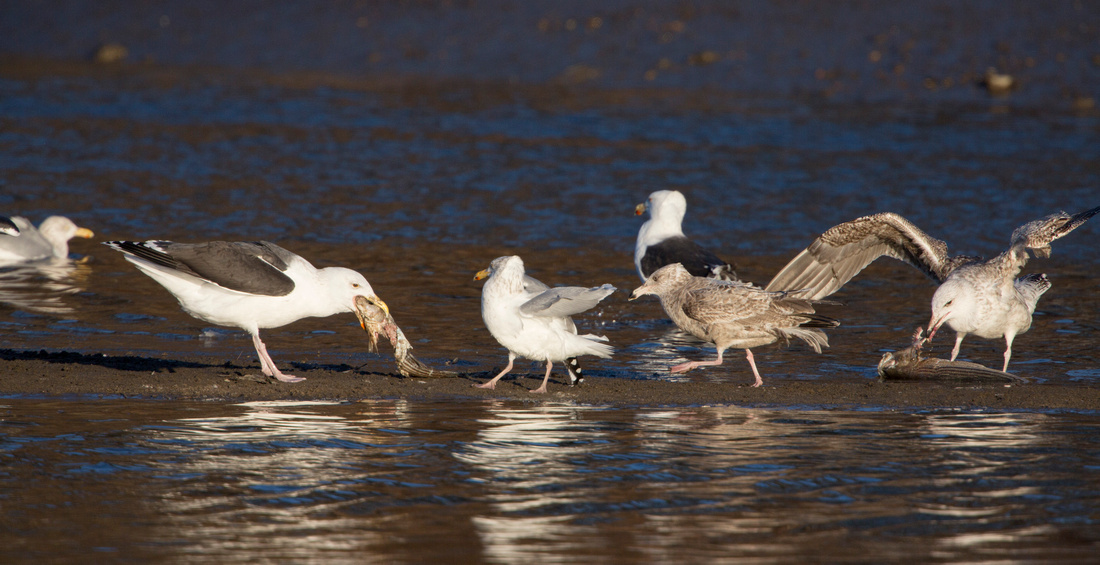

As the dead fish along the river bank were exhausted, the gulls would gather noisily near sand bars and mud banks at low tide to feed on the fish exposed by the receding water. Great Black-backed Gulls and Herring Gulls dominated, and although there was plenty of food for all, they often fought noisily over each fish.
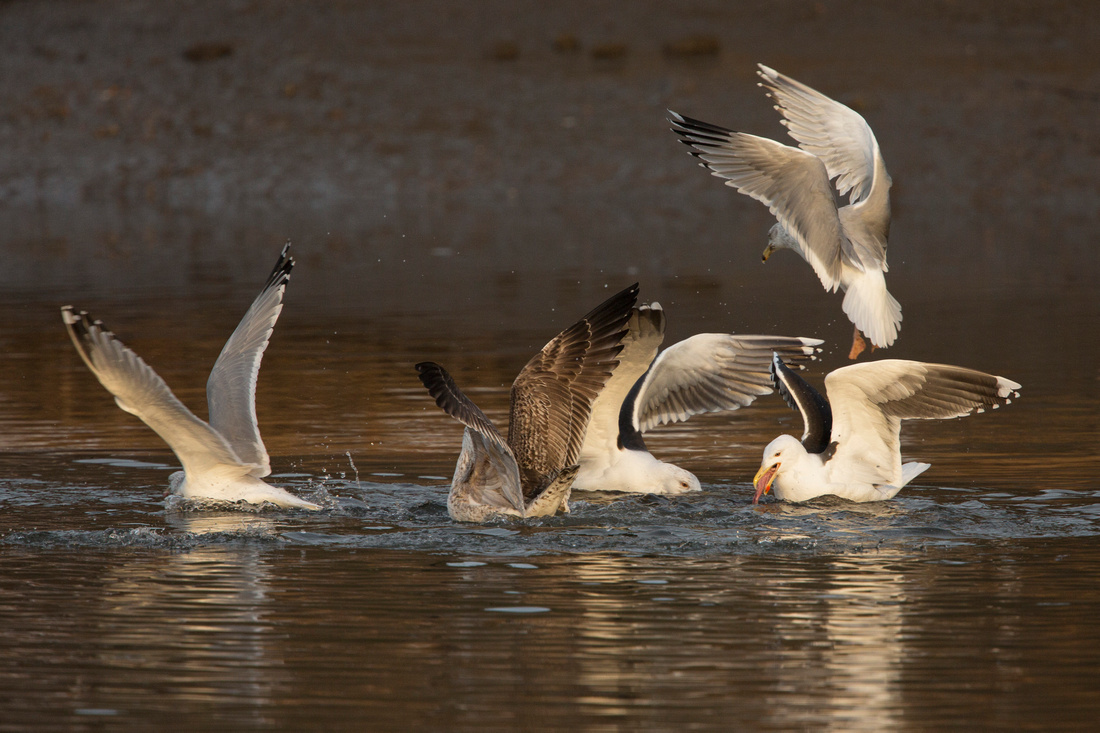

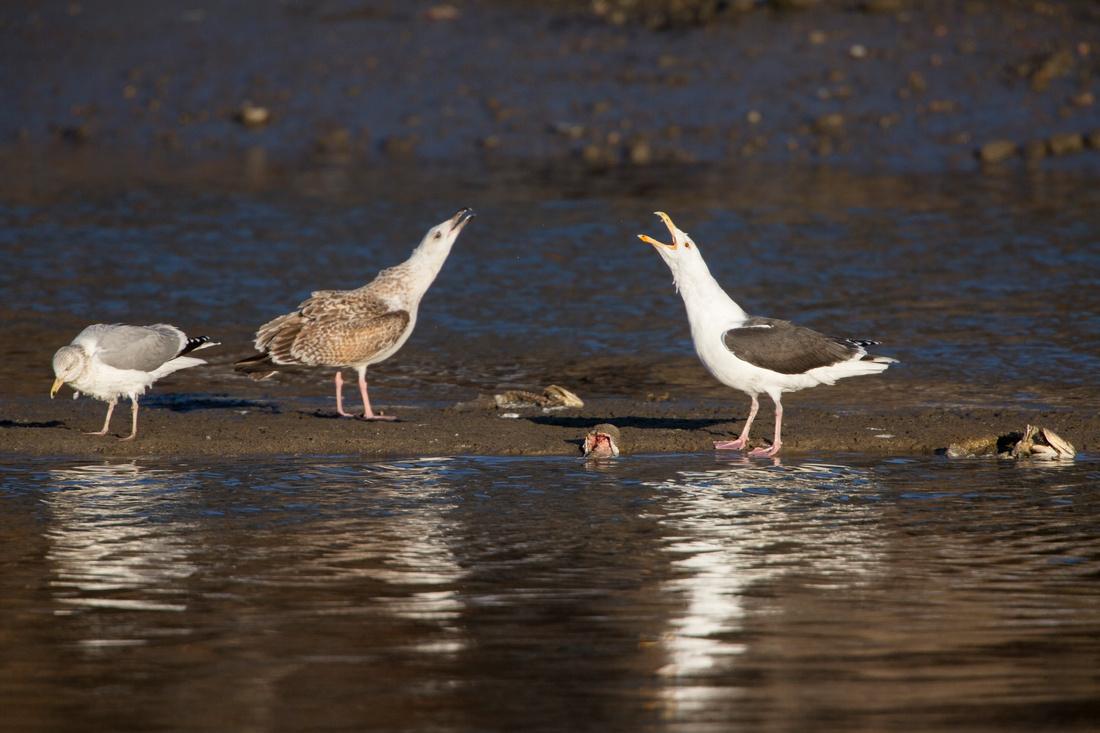

When those fish ran out the gulls resorted to dragging the seemingly endless fish carcasses from the shallow water onto ice floes or sand banks and just kept eating.
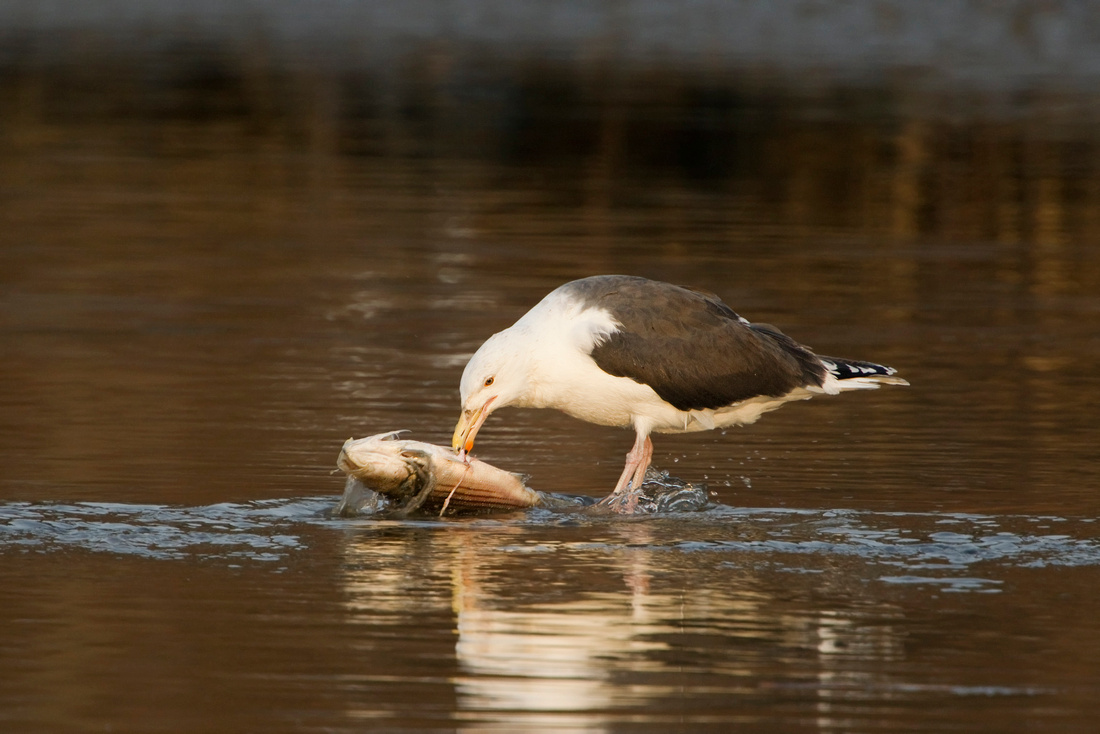

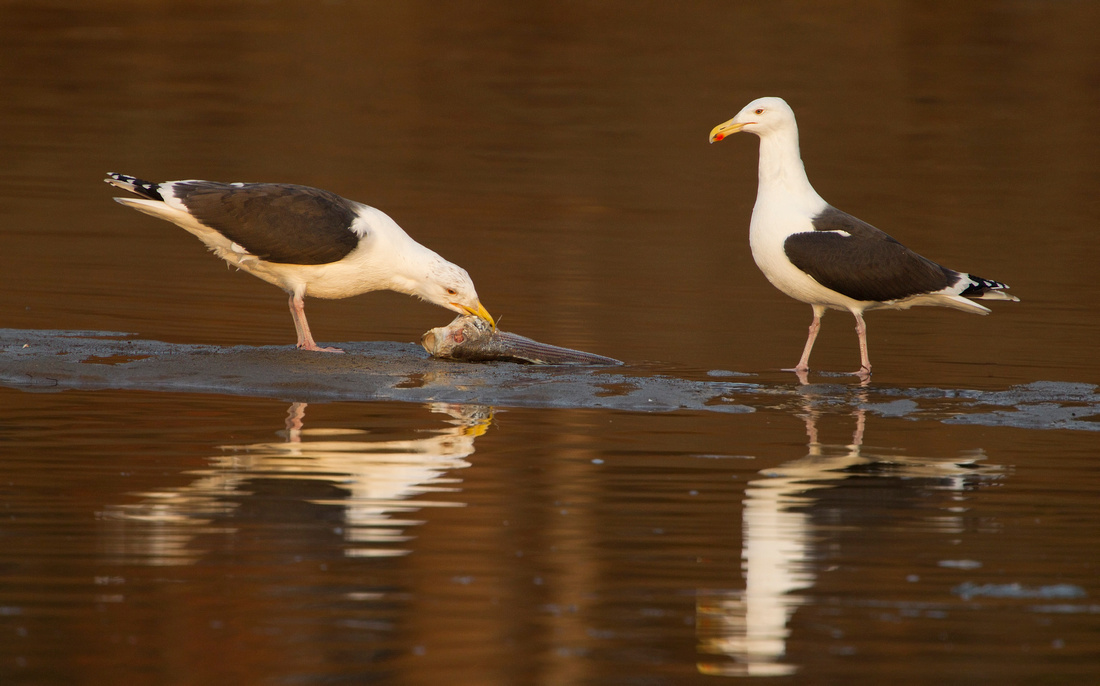

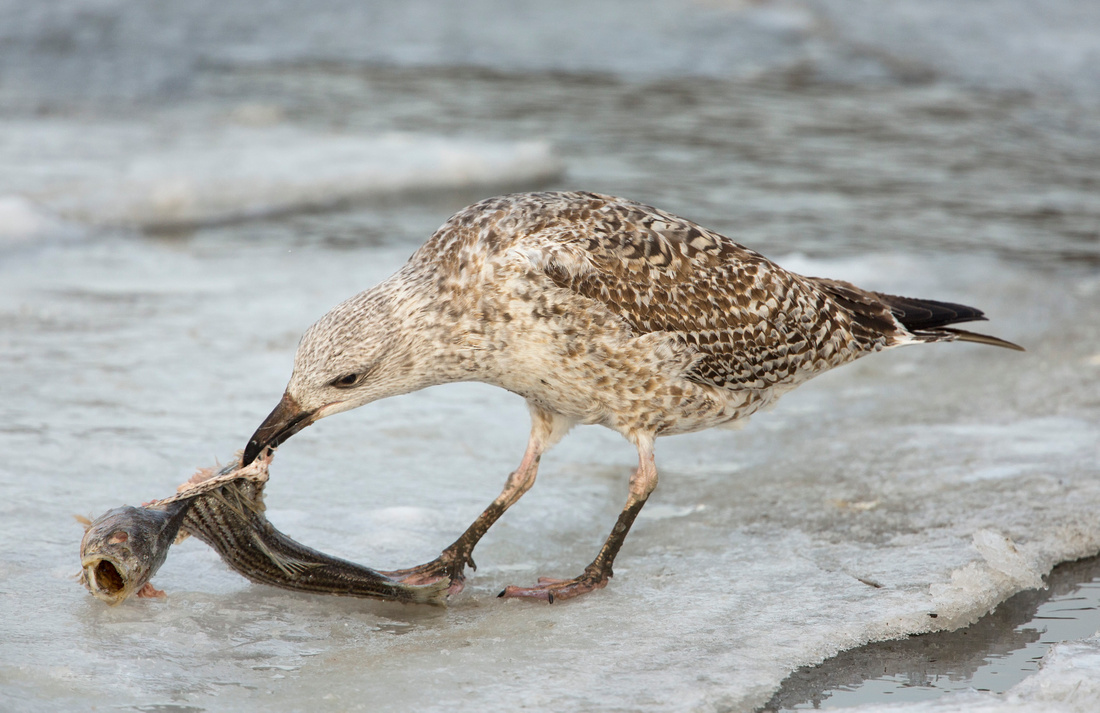

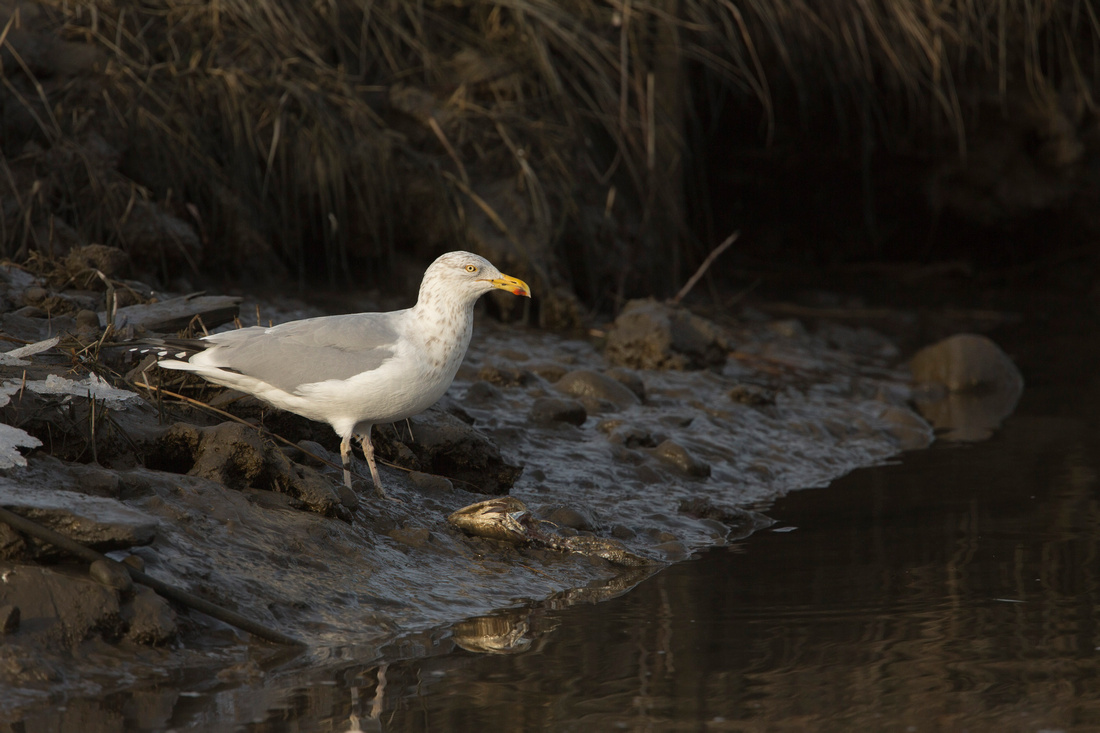

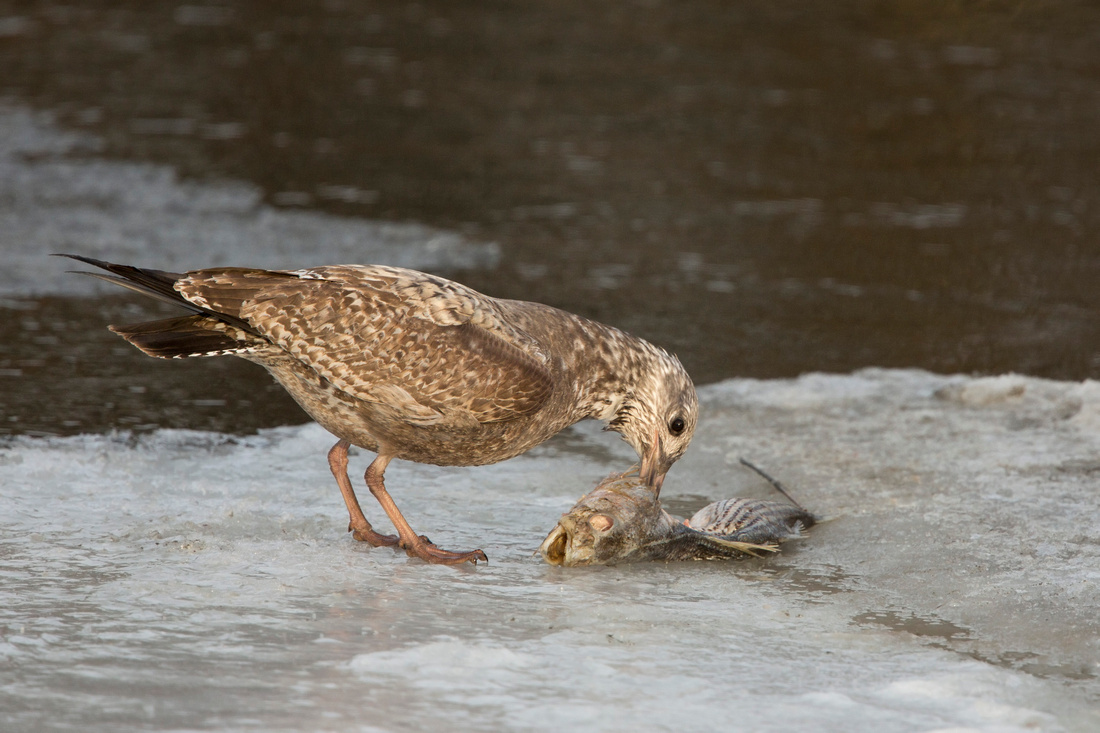

While the flock of gulls remained constant, the number of Bald Eagles on the Black Hall River began to build over the first few weeks of the bounty. At first I saw four young eagles feeding on an ice floe (presumably on the dead fish) near at the mouth of the Connecticut River. Early on, about half a dozen immature eagles congregated near the mouth of the river. As their numbers slowly built, the young eagles could be seen flying around upstream from the Route 156 Bridge, often chasing each other and perching in the tall pines on the bank of the Black Hall River.
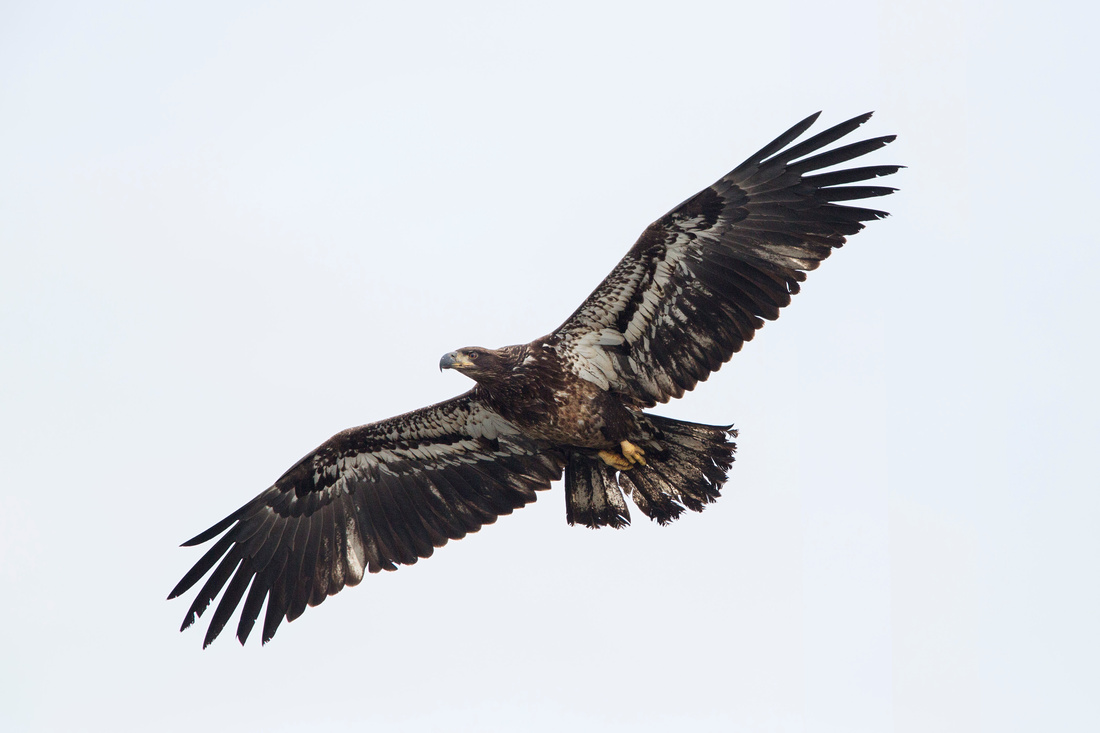

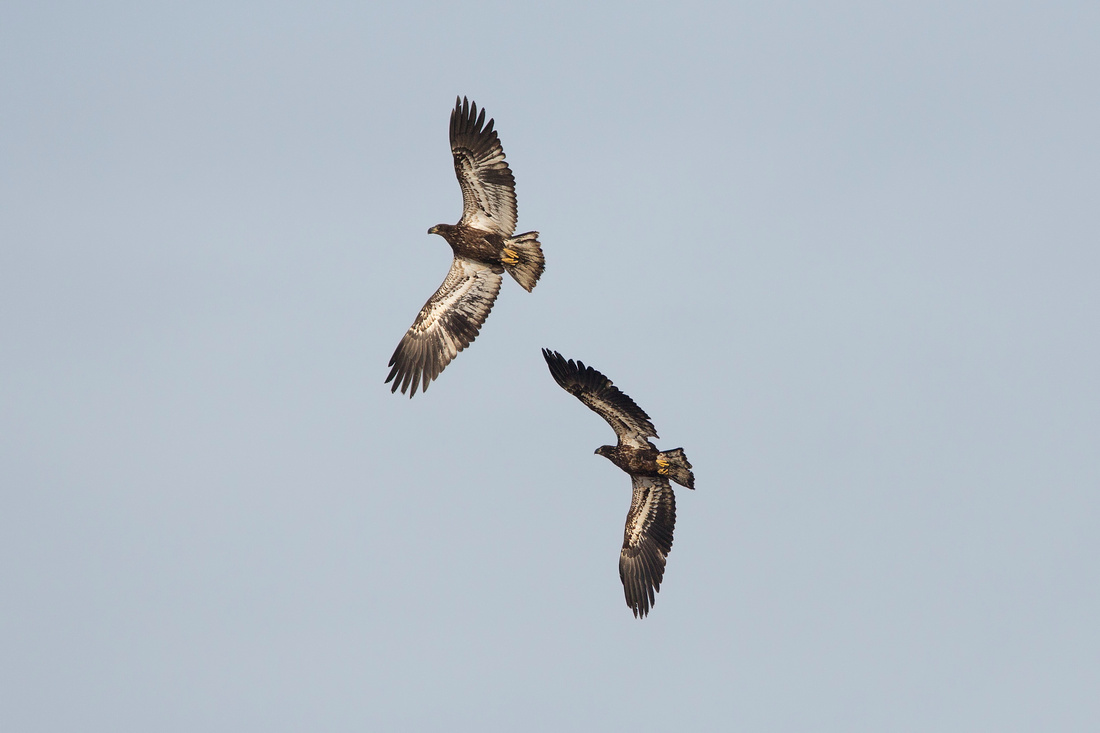

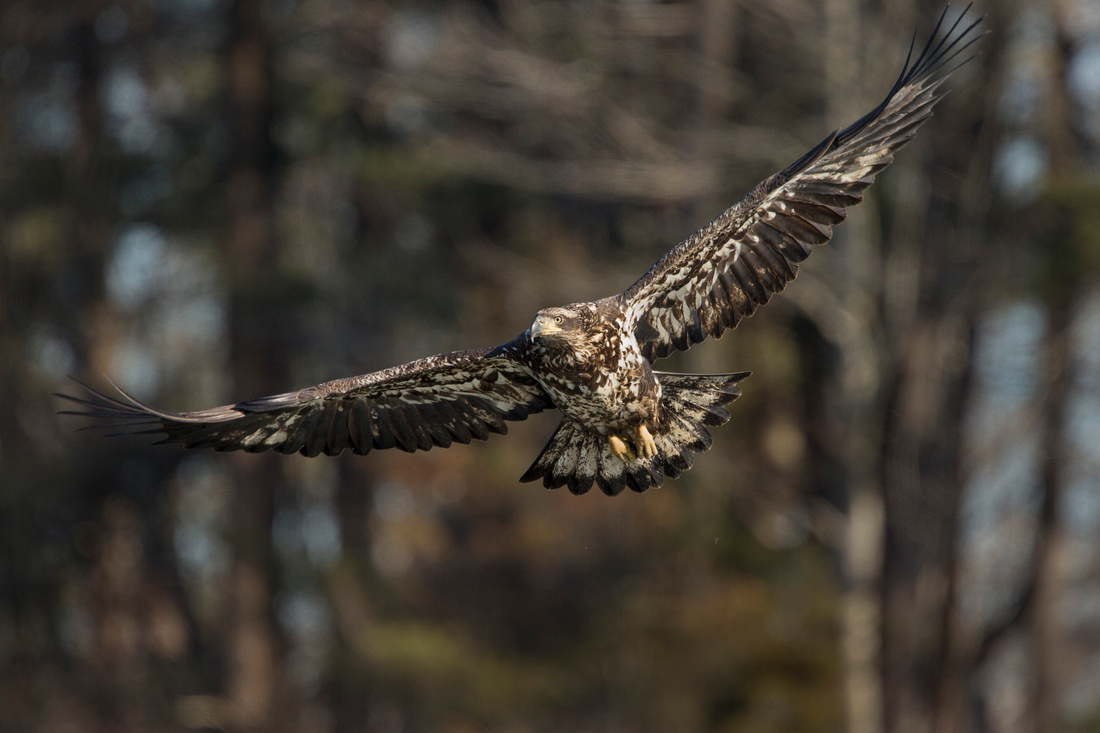

Once in a while all the gulls would suddenly take flight and a young eagle would swoop down to the water, grab a fish and fly off with it.
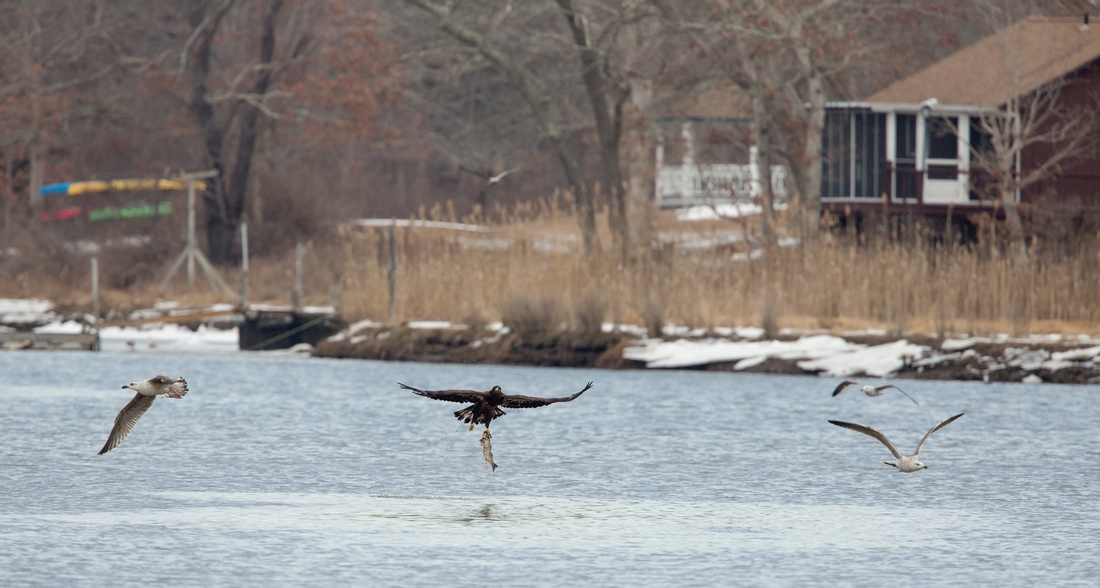

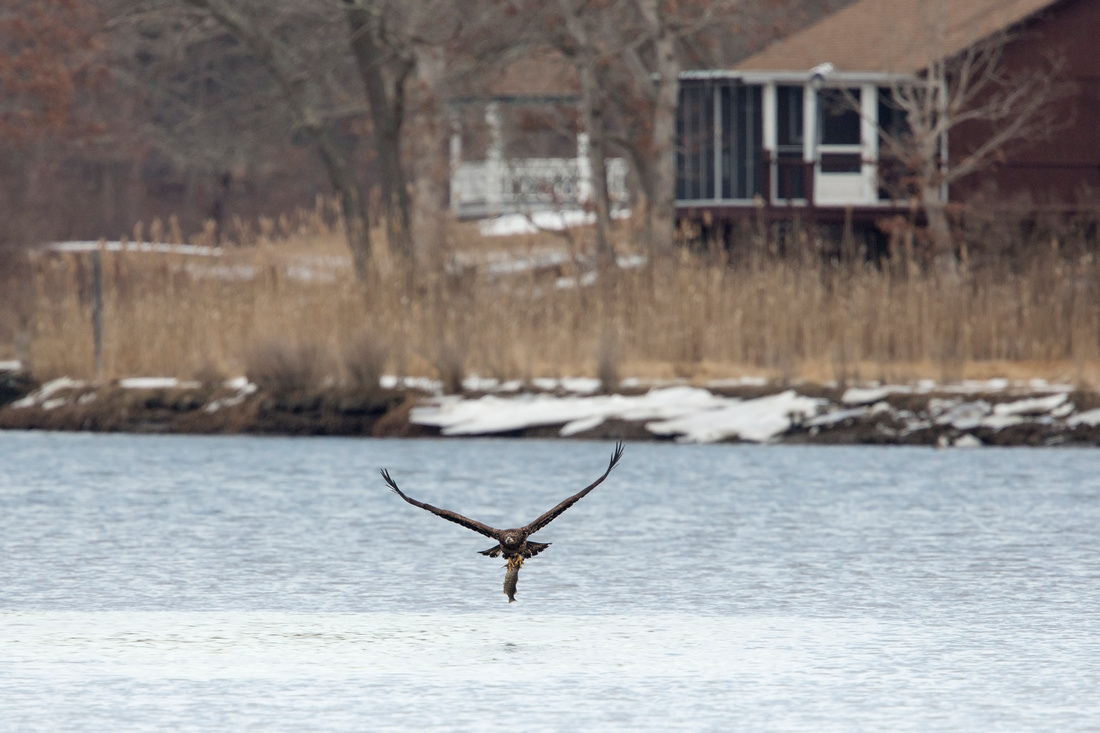

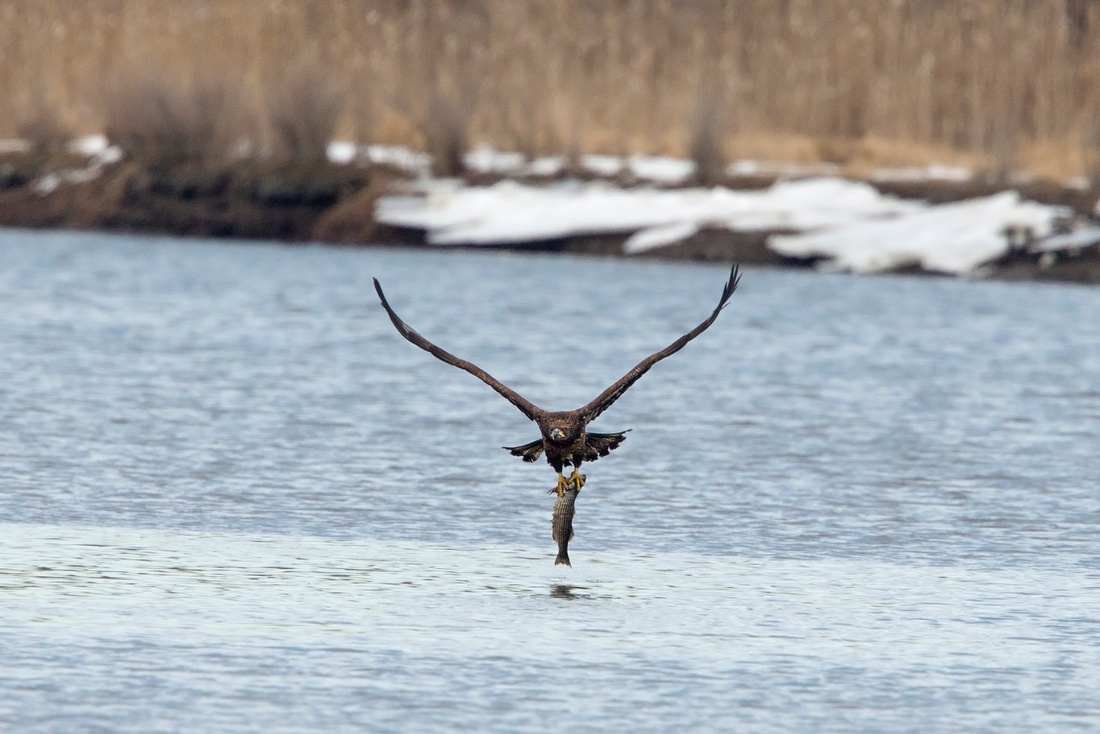

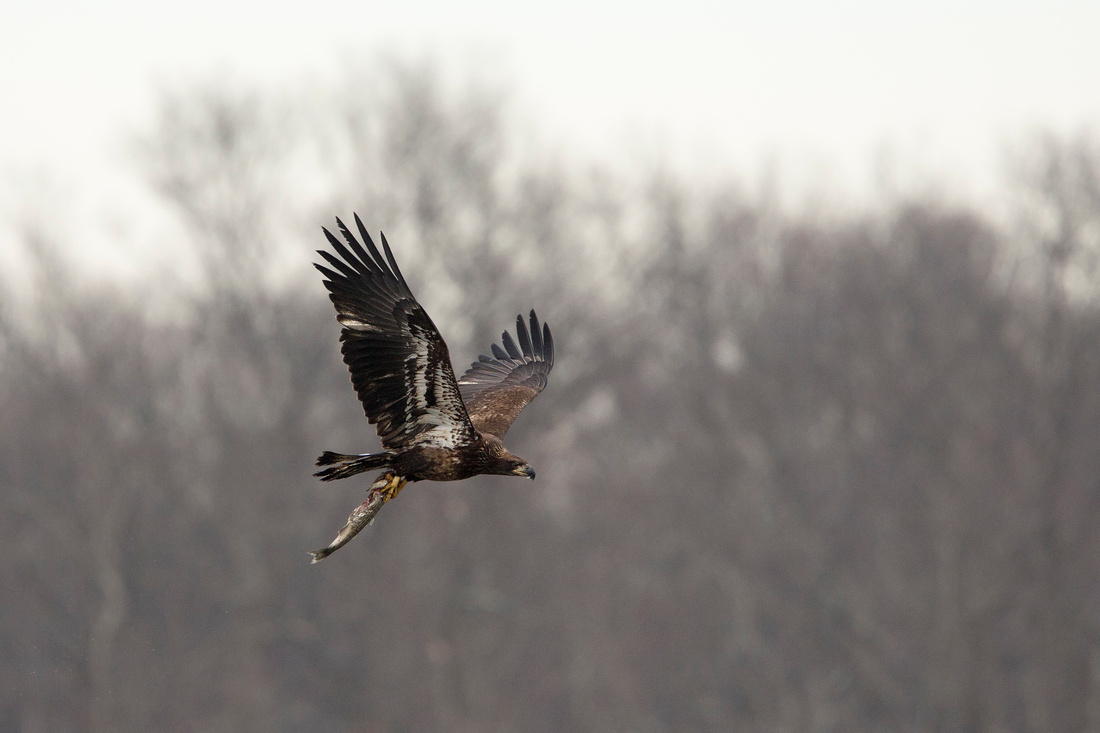

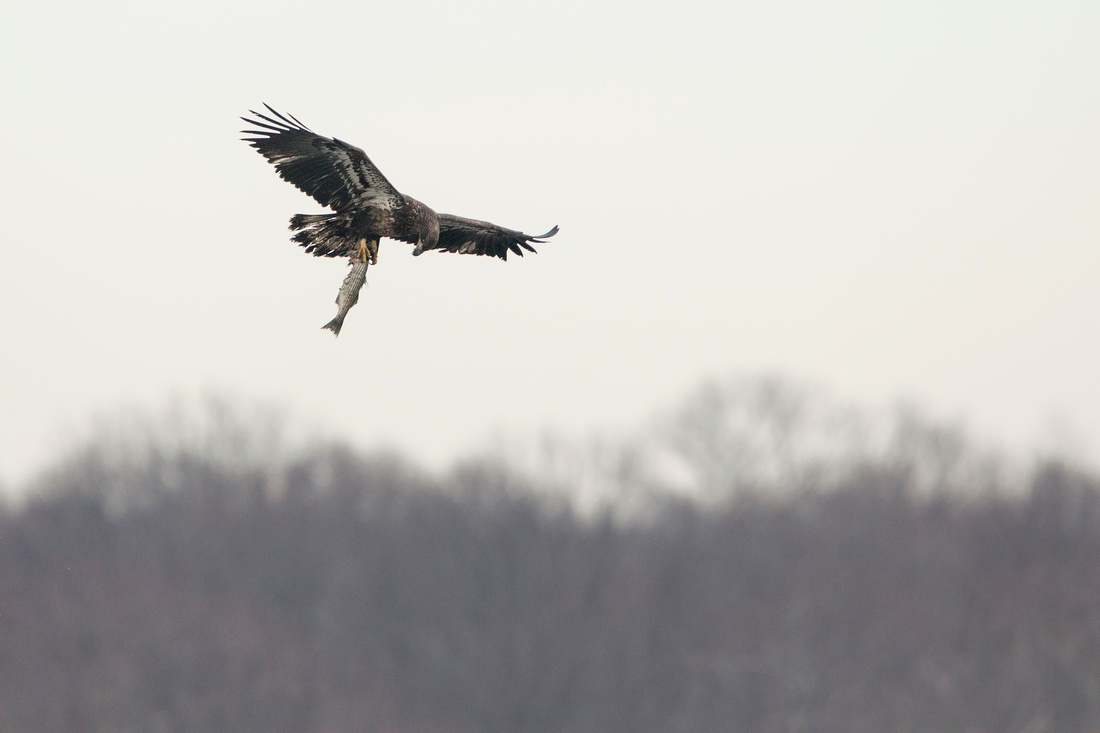

It's been more than a month now since the fish kill and there are still plenty of dead fish for the taking. The well fed gulls continue their noisy feast and the number of Bald Eagles has grown to more than two dozen. Last week, after one of the snow storms I drove by the river early in the morning and counted at least 15 immature eagles roosting in a single stretch of woods, their dark shapes standing out against the snow covered branches. It was the kind of scene you'd expect to see in Alaska, not in Connecticut. Unfortunately, they were too far off for a good picture. There are also two adult eagles frequenting the area.
Another interesting thing was that I kept seeing Red-shouldered Hawks perched out in the open in trees along the river bank, forsaking their normal woodland habitat. One morning I discovered that they, too, were taking full advantage of the all-you-can-eat seafood buffet. I watched a hawk spend nearly 45 minutes eating a fish on a gravel bar, completely stripping the carcass of flesh.
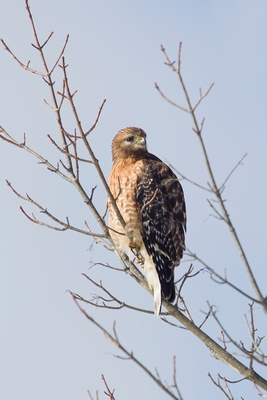

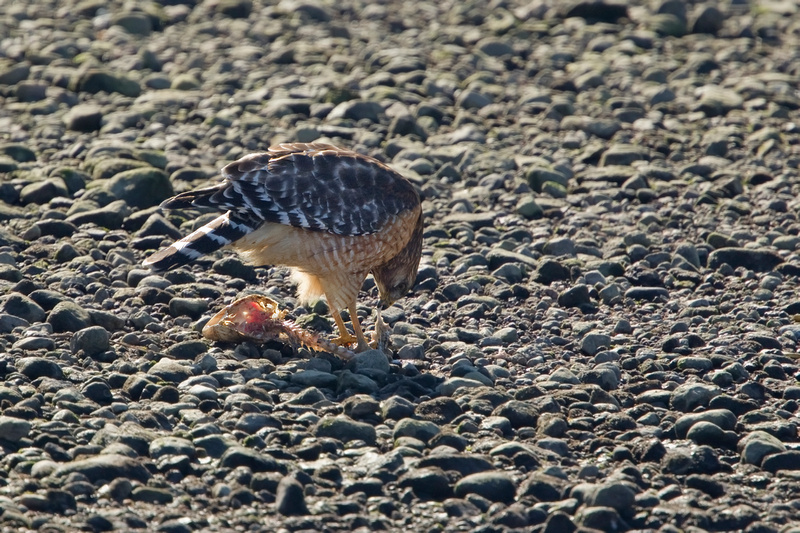

Nature can be pretty harsh, and the death of so many healthy young fish is sad to see. Hopefully the die-off won't seriously deplete the Striped Bass population in our waters. As cruel as it can be, though, nature also has a way of balancing things out, and the dead fish have turned a cold, harsh winter into a time of plenty for the many birds who have gathered at the Black Hall River.